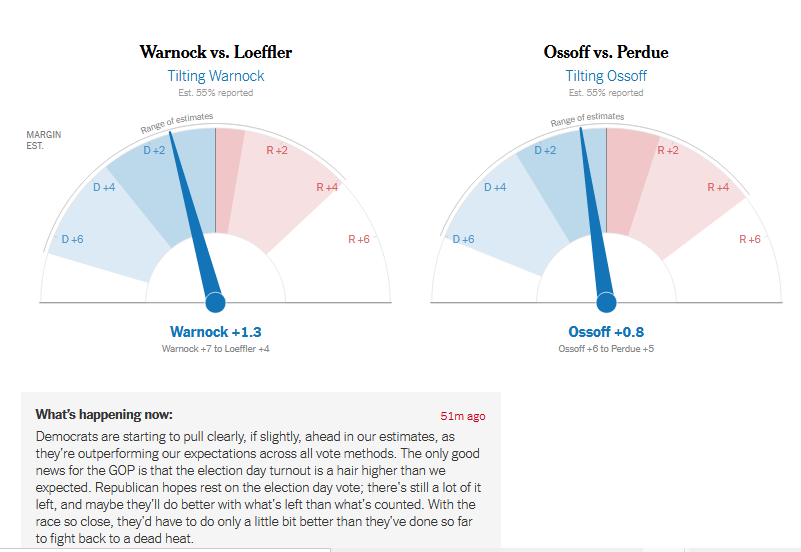Z.W. Wolf
Senior Member.
There's nothing wrong with the machines. The perception that there is comes from a disinformation campaign. Trump started the rigged election narrative last summer simply by inventing it out of nothing and repeating it relentlessly. After election day the disinformation campaign became a high-volume firehose of lies from multiple sources.
See this thread: https://www.metabunk.org/threads/the-firehosing-propaganda-technique.11472/
A real complication was created by Rep state legislatures passing laws forbidding mail ballots to be processed/counted before election day.
See this thread: https://www.metabunk.org/threads/ex...ts-and-data-dumps-in-the-2020-election.11471/
This article is apropos to our current situation.
https://getpocket.com/explore/item/...ability-to-fake-news?utm_source=pocket-newtab
See this thread: https://www.metabunk.org/threads/the-firehosing-propaganda-technique.11472/
A real complication was created by Rep state legislatures passing laws forbidding mail ballots to be processed/counted before election day.
See this thread: https://www.metabunk.org/threads/ex...ts-and-data-dumps-in-the-2020-election.11471/
This article is apropos to our current situation.
https://getpocket.com/explore/item/...ability-to-fake-news?utm_source=pocket-newtab
Later in the same article...External Quote:A 2017 study published in the journal Intelligence suggests that some people may have an especially difficult time rejecting misinformation. The study is significant because it identifies what may be a major risk factor for vulnerability to fake news.
...researchers ... first had over 400 subjects take a personality test. ...assigned each subject to one of two conditions. In the experimental condition, the subjects read a biographical description of a young woman named Nathalie. ....Nathalie, a nurse at a local hospital, "was arrested for stealing drugs from the hospital; she has been stealing drugs for 2 years and selling them on the street in order to buy designer clothes."
The subjects then rated Nathalie on traits such as trustworthiness and sincerity, after which they took a test of cognitive ability. Finally, the subjects saw a message on their computer screen explicitly stating that the information about Nathalie stealing drugs and getting arrested was not true, and then rated her again on the same traits. The control condition was identical, except that subjects were not given the paragraph with the false information and rated Nathalie only once.
The subjects in the experimental condition initially rated Nathalie much more negatively than did the subjects in the control condition. This was not surprising, considering that they had just learned she was a thief and a drug dealer. The interesting question was whether cognitive ability would predict attitude adjustment—that is, the degree to which the subjects in the experimental condition would rate Nathalie more favorably after being told that this information was false.
It did: subjects high in cognitive ability adjusted their ratings more than did those lower in cognitive ability. The subjects with lower cognitive ability had more trouble shaking their negative first impression of Nathalie. This was true even after the researchers statistically controlled for the subjects' level of open-mindedness (their willingness to change their mind when wrong) and right-wing authoritarianism (their intolerance toward others), as assessed by the personality test. Thus, even if a person was open-minded and tolerant, a low level of cognitive ability put them at risk for being unjustifiably harsh in their second evaluation of Nathalie.
External Quote:...other research ....on the mechanisms underlying the effects of misinformation. Repeating a false claim increases its believability... Known as the illusion of truth effect, .
On each of three days, subjects listened to plausible-sounding statements and rated each on whether they thought it was true. Half of the statements were in fact true, ....the other half were false.
Some of the statements were repeated across days, whereas others were presented only once. The results showed that the average truth rating increased from day to day for the repeated statements, but remained constant for the non-repeated statements, indicating that subjects mistook familiarity for verity.
Last edited:

